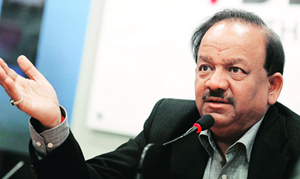Mumbai, Jan 4: Algebra and the Pythagoras' theorem both originated in India but the credit for these has gone to people from other countries, Union Minister for Science and Technology, Harsh Vardhan, said here today.
Ancient Indian scientists have graciously allowed scientists from other countries to take credit for their findings, the minister said at the inaugural event of the Indian Science Congress.
"Our scientists discovered the Pythagoras theorem, but we ... gave its credit to the Greeks. We all know that we knew 'beejganit' much before the Arabs, but very selflessly we allowed it to be called Algebra. This is the base the Indian scientific community has maintained," Vardhan said.
The Union minister said Indians have never used their knowledge of science for negative purposes.
"Whether it is related to the solar system, medicine, chemistry or earth science, we have shared all our knowledge very selflessly," he said.
Last year, Prime Minister Narendra Modi had said that in ancient times, India had opened new frontiers in the field of science.
"Mahabharata says Karna was not born out of his mother's womb. This means people then were aware of genetic science. There must have been a plastic surgeon who fixed an elephant's head on Ganesha," Modi had said in Mumbai, adding that what the mathematician Aryabhata had said centuries ago, the world has accepted now.






Comments
Add new comment